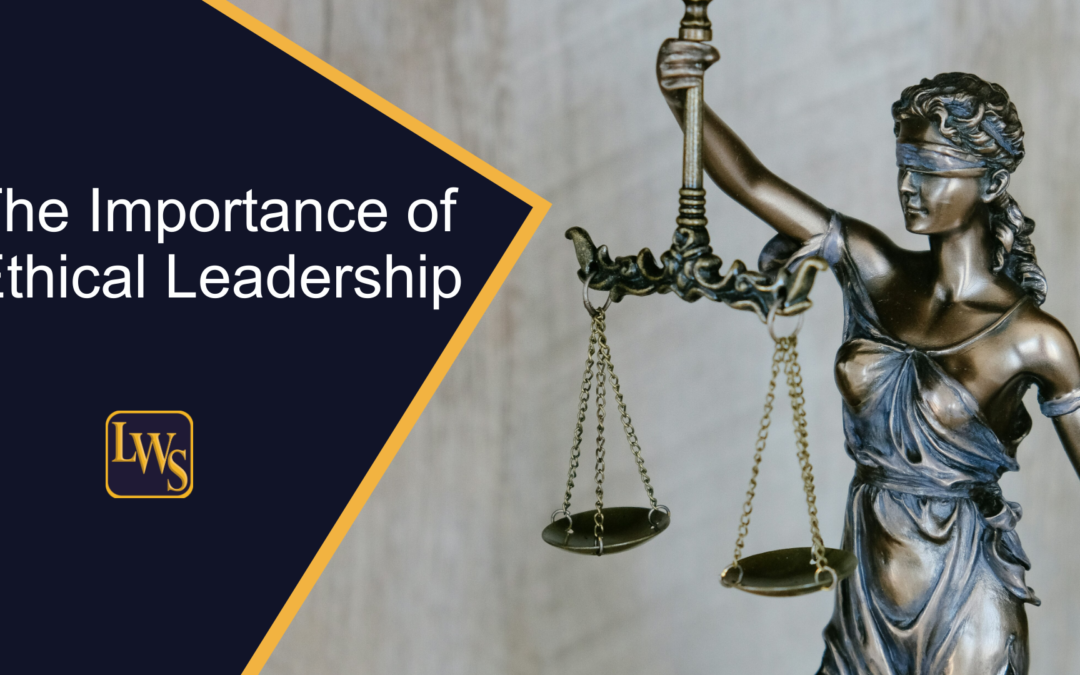At a Glance
- Understand the importance of ethical leadership in today’s business environment.
- Explore key aspects such as ethics, corporate responsibility, and ethical decision-making.
- Learn how ethical leaders shape organizational culture and embody integrity.
- Discover the benefits of ethical leadership, including improved reputation and increased employee engagement.
- Gain insights into how ethical leadership fosters risk mitigation, innovation, and long-term sustainability.
The significance of ethical leadership cannot be overstated. As organizations strive to build trust, maintain reputation, and navigate complex challenges, leaders who prioritize ethics are paving the way for sustainable success. In this article, we will explore the importance of ethical leadership in today’s business environment and delve into key aspects such as ethics, corporate responsibility, ethical decision-making, organizational culture, integrity in leadership, and the foundational role of values.
Ethical Leadership: Guiding Principles for Success
At its core, ethical leadership entails leading by example and making decisions that align with a strong moral compass. It requires leaders to consider the impact of their actions on employees, stakeholders, and society as a whole. By championing transparency, fairness, and integrity, ethical leaders foster an environment conducive to growth and long-term prosperity.
Embracing Ethics
Ethical leadership starts with a deep commitment to not just business ethics but all ethics. Organizations that prioritize ethical conduct set the stage for trust and credibility. From promoting fair competition to ensuring honest communication and adhering to legal and regulatory frameworks, ethics provide a solid foundation for sustainable growth.
“There’s no such thing as business ethics—there’s only ethics. People try to use one set of ethics for their professional life, another for their spiritual life, and still another at home with their family. That gets them into trouble. Ethics is ethics. If you desire to be ethical, you live it by one standard across the board.” John C Maxwell
Nurturing Corporate Responsibility
Corporate responsibility goes hand in hand with ethical leadership. Leaders who recognize the importance of their organization’s impact on the environment, community, and society at large are better equipped to make responsible decisions. By integrating social and environmental considerations into their strategies, ethical leaders create a positive impact while driving long-term value.
The Power of Ethical Decision-Making
Ethical leaders understand that decision-making is not just about profitability; it is about doing what is right. They prioritize values over short-term gains and carefully evaluate the consequences of their choices. By involving stakeholders in the decision-making process and considering diverse perspectives, ethical leaders foster a culture of inclusivity and fairness.
Shaping an Ethical Organizational Culture
Leaders play a pivotal role in shaping the culture of their organizations. By setting high ethical standards and promoting a culture of integrity, leaders inspire employees to act ethically in their day-to-day activities. An ethical organizational culture encourages trust, collaboration, and accountability, leading to improved employee satisfaction and overall performance.
The Role of Integrity in Leadership
Integrity is the backbone of ethical leadership. Leaders who demonstrate honesty, consistency, and a strong moral character establish credibility and inspire trust among their teams. By upholding ethical standards even in challenging situations, leaders become role models for their employees and cultivate a culture of integrity throughout the organization.
Values as the Foundation to Ethical Leadership
Values serve as the bedrock upon which ethical leadership is built. They provide a guiding framework that shapes behavior, decision-making, and organizational culture. Leaders who embrace core values such as honesty, respect, fairness, and responsibility set a clear standard for ethical conduct within their organizations. By aligning their actions with these values, leaders establish a strong foundation for ethical leadership and create an environment that promotes trust, engagement, and long-term success.
The Benefits of Ethical Leadership
Ethical leadership yields numerous benefits for both individuals and organizations. Let’s explore some of the key advantages:
- Enhanced Reputation: Ethical leaders build a reputation for trustworthiness and integrity, attracting stakeholders who value ethical conduct.
- Improved Employee Engagement: Employees thrive in environments where they feel valued and supported. Ethical leaders create a sense of purpose, fostering employee engagement and loyalty.
- Risk Mitigation: By prioritizing ethical decision-making, leaders minimize the risks associated with legal, reputational, and financial repercussions.
- Increased Innovation: An ethical culture encourages open communication and diverse perspectives, fostering innovation and creativity within the organization.
- Long-term Sustainability: Organizations led by ethical leaders are more likely to achieve sustainable growth by considering the long-term impact of their actions on all stakeholders.
Conclusion
In today’s business environment, ethical leadership is not just an option; it is a necessity. By embracing ethics, nurturing corporate responsibility, making ethical decisions, shaping an ethical culture, and embodying integrity, leaders can propel their organizations towards success while positively impacting society as a whole. As we navigate an increasingly complex world, let us remember that ethical leadership is the compass that guides us towards a brighter and more sustainable future.
How can you align your actions with ethical values and principles to promote a culture of integrity within your organization?
How can you promote ethical behavior and hold individuals accountable for their actions within the organization?
How can you effectively communicate your organization’s commitment to ethical leadership to stakeholders, including employees, customers, and investors?
Start developing your leadership skills today with The Effective Leader or sign up today for the Effective Leadership email newsletter.
Contact me today for a complementary Strategy Session: Leadership Strategy Session
Or book me to speak at your next Event, Team Meeting, or Off-Site Retreat: Speaker Request

